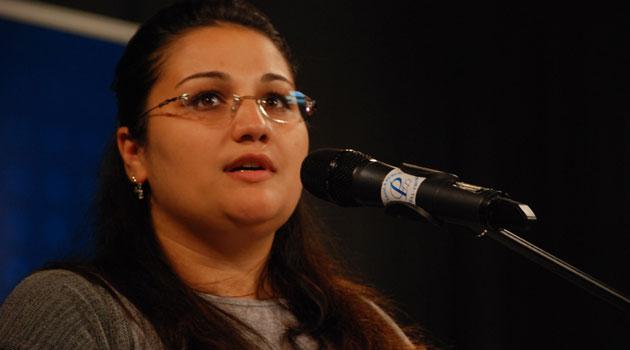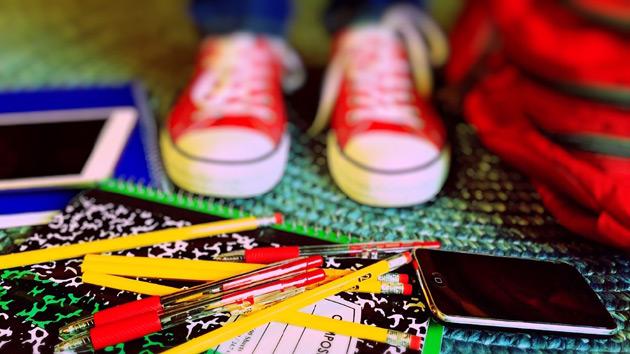Czech court rules that school ethnically discriminated against Romani children by rejecting their enrollment

The Pěší Primary School in Ostrava-Muglinova discriminated against two Romani preschoolers when it refused to enroll them into first grade in 2014, according to a ruling by the District Court there. The court found that the school was attempting to unjustifiably regulate the number of Romani children in the first grade class.
Judge Jiří Šopek rejected the plaintiffs’ claim of CZK 50 000 [EUR 1 950] in financial compensation per child. The school must apologize in writing to the children, who are now third-graders, within 30 days.
Karvayová: This is a groundbreaking verdict
“This is a groundbreaking verdict. For the first time in the Czech Republic, a district court has acknowledged the discrimination of Romani children in their access to a quality education, and the judge even stated in his reasoning that the discrimination of Romani children during enrollment leads to the creation of segregated schools,” said Magdalena Karvayová, BA, an organizer from the Awen Amenca team who works with Romani communities on the issue of equal access to quality education.
“Segregation, according to the judge, has a negative impact on Romani pupils, who as a result have little chance of succeeding at high schools with exit examinations, which influences their future,” she said. The principal of Pěší Primary School, Kamil Krahula, rejects the finding of discrimination.
Krahula alleges that he had more first-graders interested in enrolling than he had room for at the school. He asserts that he did his best to convince staffers with the Life Together (Vzájemné soužití) organization that the Romani preschoolers should apply elsewhere, informing them that 12 Romani children from the Slezská Ostrava neighborhood would already be enrolling.
According to Karvayová, Krahula proposed that the Romani children be enrolled into a segregated school in the Kučičky neighborhood, the Škrobálkova Primary School, where the student body is 90 % Romani. A Life Together staffer recorded a conversation with Krahula and then argued in court that he behaved discriminatorily.
“He alleged that he already had to enroll nine Romani children who had postponed their enrollments into first grade the year before, and if he were to enroll more Romani children, the parents of the majority-society children would then remove their own children from the school,” Jolana Šmarhovyčová told news server iDNES.cz. According to Karvayová, the audio recordings that she and Šmarhovyčová obtained played an important role when they were monitoring enrollments, as did their testimony and that of the legal representatives of the boys involved.
Judge: The principal was not happy about Romani children
The judge stated that the school principal knew in advance how many Romani children would be enrolling. In the judge’s opinion, that is clear evidence that the principal was unhappy about Roma attending the school.
In order to choose which children to enroll, the director opted to test their school readiness. The text was designed by the school and assessed whether a child knew how to recognize colors, count, and communicate his or her home address.
“The test was apparently neutral, but the school abused it as an instrument for regulating Romani pupil numbers,” the judge said. The school informed the preschoolers’ legal representatives that their children had failed, and the children then sued.
“It’s not true that they failed the test. Those tests were manipulated. There were two teachers involved. One tested the boys and the parents requested a record of her assessment, because they had been following the notes she made as she made them. Her assessment gave zero points for all categories and a note to the effect that the child had failed. The parents then requested that the test be re-performed. Jolana Šmarhovyčová, who was monitoring the enrollment process, began to administer the test to the child in front of the teacher. The child passed. The second teacher then took that test, tore up the results of the first one, and admininstered the test again,” Karvayová told news server Romea.cz.
The mother of one Romani pupil and the grandmother of the other Romani pupil perceived both the performance of the tests and their outcomes to be discriminatory. “The teacher frowned and shouted at my son until he cried. The Romani children said she was mean. The teachers were kinder to the children from the majority society,” alleged the relatives of the children who sued.
According to separate assessments made of the children, they actually were sufficiently prepared for instruction when they attempted to enroll into first grade, and today they are among the successful pupils at the schools they attend. According to the judge, the principal’s communication that if more than five Romani children enrolled in a class, then non-Romani parents would begin withdrawing their children and transferring them to other schools was a testament to the school’s own discriminatory behavior.
The principle apparently said flat out that there was a danger that an all-Romani first-grade class would be created in response to such developments. “Even if that were true, the school must not succumb to pressure from public opinion that way. On the contrary, the school must set an example and show that even in such classes children can receive a quality education,” the judge said.
The school later told the legal representatives of the Romani boys that it would enroll them, but by that time the children were enrolled in a different school. The court rejected their request for compensation because the school eventually offered to enroll them.
According to the judge, the psychological damage done to the children was significantly reduced by the school’s offer to enroll them. Last March the families of both boys also attempted reconciliation with the school management.
The families wanted an apology. The principal refused, so the parents filed suit.
Principal: I haven’t discriminated against anybody
Krahula rejects the reservations expressed by the court about his decisions. “I have not discriminated against anybody,” he declared, insisting he had not been aware of the ethnic affiliation of the preschoolers when they attempted to enroll.
“I just got the resulting list,” the principal said. In his opinion, all of this has been caused by insufficient capacity at the school, as that year two classes of children were not enrolled for lack of room.
“That is why we were reflecting on how to establish criteria according to which we would choose the pupils,” Krahula explained. He admitted that tests of school readiness might not necessarily be the best solution.
Krahula’s attorney, however, says there is no clear methodology for how to proceed in such cases. The judgment has yet to take effect and Krahula is considering whether to appeal.
“For the parents of these boys it was not important to achieve financial compensation, but they invested all of their efforts into acheiving justice. They are extremely satisfied with the judgment and believe that thanks to their fight they will protect the futures of other Romani children who have the right to equal access to a quality education. For that reason, our Awen Amenca team wants to continue to empower and organize Romani parents in matters of equal access to a quality education, as we are currently doing,” Karvayová told news server Romea.cz.
